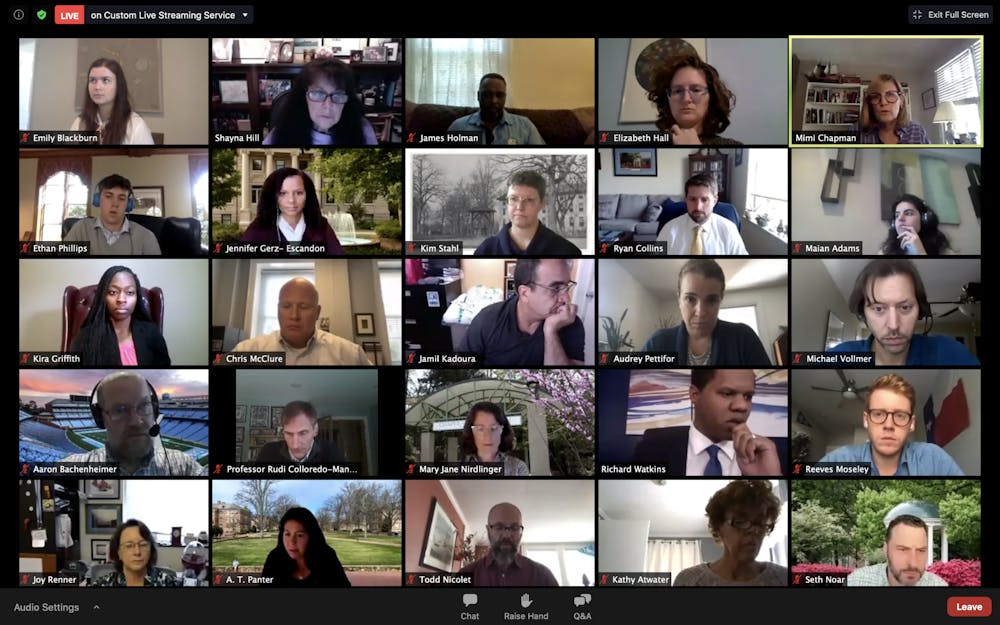Carolina Housing is only considering single-occupancy dorms for the spring semester, Chairperson of the Faculty Mimi Chapman said Tuesday at a meeting of the Campus and Community Advisory Committee.
The committee, at its third meeting since its creation, agreed to recommend to Provost Bob Blouin and Chancellor Kevin Guskiewicz that the spring semester be delayed and that re-entry testing be mandatory.
The committee — comprised of students, faculty, staff and community members — is tasked with evaluating the Fall 2020 Carolina Roadmap and providing input on how the University can best move forward this spring.
Chapman said the assumption that coronavirus testing will improve next semester is a condition of all committee recommendations.
“The baseline that we want to see as a group is robust tracing and testing, much more robust than what we have right now,” Chapman said.
Spring semester delayed start
The committee will recommend both Jan. 11 and 19 to Blouin and Guskiewicz as new start date options instead of Jan. 6 as currently planned. Most members prefer the later start date.
The later date is beneficial because it increases the break between the New Year and when students are back on campus, allows more time for the University to set up testing and gives more time to see how the virus unfolds, among others, the committee said.
Members also talked about how a delayed start could affect spring break. They again discussed alternatives to the traditional week-long break like five, separate days of mid-week breaks, to prevent risky behavior like traveling that could spread COVID-19.




